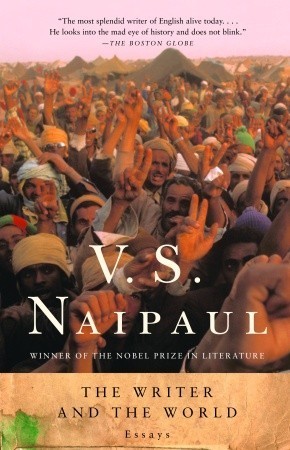
Spanning four decades and four continents, this magisterial volume brings together the essential shorter works of reflection and reportage by the Nobel Prize-winning author. “The most splendid writer…. He looks into the mad eye of history and does not blink.” — The Boston Globe V.S. Naipaul is our most sensitive, literate, and undeceivable observer of the post-colonial world. In these pages, he trains his relentless moral intelligence on societies from India to the United States and sees how each deals with the challenges of modernity and the seductions of both the real and mythical past. Whether he is writing about a string of racial murders in Trinidad; the mad, corrupt reign of Mobutu in Zaire; Argentina under the generals; or Dallas during the 1984 Republican Convention, Naipaul combines intellectual playfulness with sorrow, indignation, and analysis so far-reaching that it approaches prophecy. The Writer and the World reminds us that he is in a class by himself.
Author

Naipaul was born and raised in Trinidad, to which his grandfathers had emigrated from India as indentured servants. He is known for the wistfully comic early novels of Trinidad, the bleaker novels of a wider world remade by the passage of peoples, and the vigilant chronicles of his life and travels, all written in characteristic, widely admired, prose. At 17, he won a Trinidad Government scholarship to study abroad. In the introduction to the 20th-anniversary edition of A House for Mr. Biswas, he reflected that the scholarship would have allowed him to study any subject at any institution of higher learning in the British Commonwealth, but that he chose to go to Oxford to do a simple degree in English. He went, he wrote, "in order at last to write...." In August 1950, Naipaul boarded a Pan Am flight to New York, continuing the next day by boat to London. 50 years later, Sir Vidiadhar Surajprasad "V. S." Naipaul was awarded the 2001 Nobel Prize in Literature "for having united perceptive narrative and incorruptible scrutiny in works that compel us to see the presence of suppressed histories."